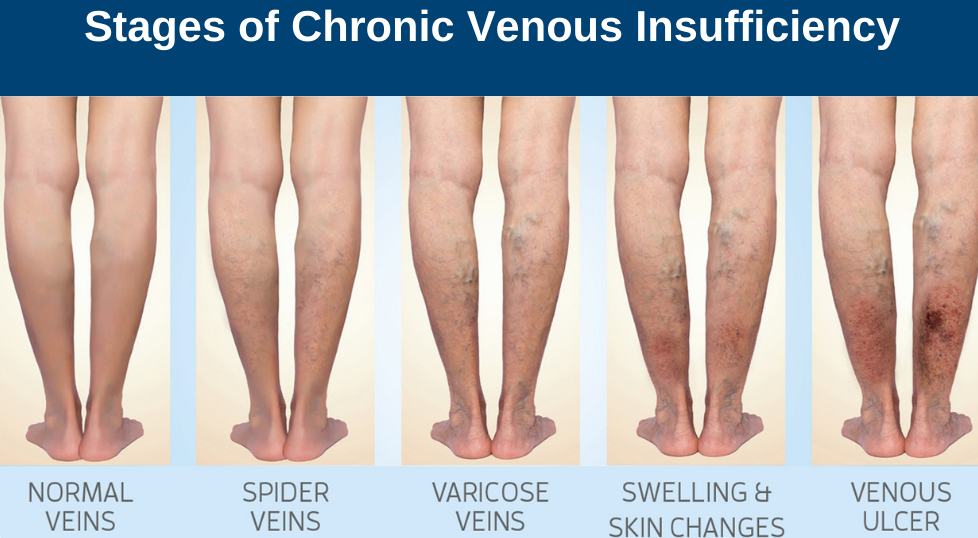Chronic Venous Insufficiency (CVI) is a medical condition in which the veins in the legs have trouble sending blood back up to the heart. It’s most common in people over 50 and especially in those who are overweight, have a sedentary lifestyle, or have a history of blood clots or varicose veins.
 What Happens in CVI?
What Happens in CVI?
Veins have one-way valves that help keep blood moving toward the heart. In CVI, these valves become weak or damaged, allowing blood to pool in the lower legs instead of circulating efficiently. This causes:
- Swelling (edema) in the legs and ankles
- Aching, heaviness, or cramping
- Varicose veins
- Discoloration or skin changes
- In advanced cases, ulcers or open sores on the lower legs
 Common Causes of CVI
Common Causes of CVI
- Aging (especially over age 50)
- Obesity
- Prolonged standing or sitting
- Previous deep vein thrombosis (DVT)
- Family history of venous disease
- Pregnancy (in women)
 Treatment Options for CVI
Treatment Options for CVI
Most cases are not serious and can be well-managed without surgery.
 1. Conservative (Non-surgical) Treatments
1. Conservative (Non-surgical) Treatments
| Treatment | Description |
|---|---|
| Compression stockings | Improve blood flow by applying gentle pressure to the legs. Most commonly prescribed. |
| Leg elevation | Lifting the legs above heart level reduces swelling and helps circulation. |
| Exercise | Walking or leg-strengthening exercises improve calf muscle function and vein return. |
| Weight management | Reducing body weight lowers pressure on leg veins. |
| Avoid long standing/sitting | Regular movement prevents blood pooling. |
 2. Medical Management
2. Medical Management
- Topical creams or wound care for skin issues or ulcers
- Diuretics (rarely) for fluid retention
- Blood thinners if there’s a clotting risk
 3. Minimally Invasive Procedures (for more advanced cases)
3. Minimally Invasive Procedures (for more advanced cases)
| Procedure | Description |
|---|---|
| Endovenous laser ablation (EVLA) or radiofrequency ablation (RFA) | Heat seals faulty veins shut |
| Sclerotherapy | Injects a solution to collapse varicose veins |
| Ambulatory phlebectomy | Surgical removal of surface veins via small skin incisions |
| Vein bypass (rare) | Reserved for severe CVI not responding to other treatments |
 Quick Facts
Quick Facts
- CVI is common: Affects ~40% of people over 50
- Not life-threatening, but it can reduce quality of life if unmanaged
- Early treatment prevents complications like ulcers or infections
- Compression therapy is the mainstay of care in most cases
If you’d like a home treatment plan or a comparison of different compression stocking types, I can help with that too.









